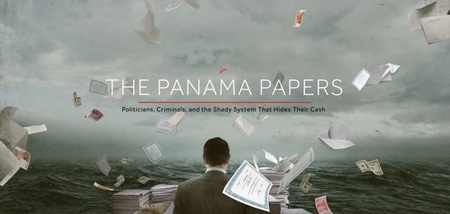It is fairly well-established that cost is the primary driver for corporate choice of law and the choice of the physical location of a company’s business. Becht et al, for example, note that entry cost is the primary consideration for choice of corporate law. These authors also note that non-price factors in choice of law have been minimised through the intervention of intermediaries. Recent developments in Malta, however, suggest that non-price factors have some bearing on choices of establishment destinations in the internal market, at least insofar as they concern physical location as opposed to mere choice of law.
By way of background, following the publication of the Panama Papers, allegations concerning kickbacks have emerged involving the current Maltese Prime Minister, his chief of staff, a close aide, and a senior minister. I make no comment here on specific allegations. I am concerned, rather, with the effects of perception on inter-jurisdictional competition for incorporation and physical relocation of businesses.
Anecdotal evidence has emerged suggesting the some companies seeking to relocate from the United Kingdom to an EU-27 jurisdiction are influenced in their choices by the reputation of regulators. Hiscox Ltd, in particular, has chosen to situate its EU business in Luxembourg, having weighed up Malta and Luxembourg as its final shortlist. This cannot be explained with reference to entry cost. Operational costs in Malta are significantly lower than those in Luxembourg. Nor can it be explained with reference to familiarity with laws. Relevant Maltese laws are closely modelled on UK acts, whereas Luxembourg is of a civilian tradition. The key, instead, appears to be in Hiscox’s reference to Luxembourg’s “well-respected regulator”. It is not beyond reasonable interpretation to read this statement in its broader context; that is to say that the alternative regulator is no longer as well-respected, and that this affected choice.
Of course, this could be an isolated example. But it is consistent with the notion that choices of law and physical location are motivated by more than cost; or, more accurately, more than direct pricing. As noted by Devrim Dumladag, among others, ‘corruption in the political system is a threat to foreign investment’. It constitutes a risk which cannot be measured accurately, and which therefore cannot be accounted for with any degree of precision. Perception, therefore, is important. In 2017, Malta dropped ten places in the international Corruption Perception Index. Risk, therefore increased.
What is more, further evidence is emerging of a direct correlation between the ability to exploit the internal market and political reputation. It emerged on 14 May 2017 that, as a consequence of money laundering concerns, Commerzbank AG will no longer accept at face values audits conducted by branches of international firms situated in Malta. There have been no legislative changes in Malta which could have informed Commerzbank’s decision. The motivator appears instead to be political and administrative developments. It seems, therefore, that political branding matters.
Indeed, branding could, in principle affect not only physical corporate mobility, but also the legal fiction of mobility in the form of choice of corporate law. Drury argues, albeit in a quite different context, that a choice of corporate law – and with it the national suffix attached to a company name – affects public perception of a company. ‘Such labels give that company a distinctive national flavour in the minds of the public.’ Clearly then, it is not just the price of entry that would affect incorporation decisions, but also the associations arising from the national label which comes with incorporation.
This suggests that further evidence may emerge of downturns in the establishment of legitimate businesses under Maltese law. In other words, it is quite likely that both de facto and de jure mobility in the internal market may be affected by perceptions of corruption. While any evidence will likely be anecdotal in the absence of sustained academic investment, there is certainly some scope to qualify assumptions concerning price as a driver for corporate mobility.
This blog post is by Justin Borg-Barthet, a lecturer in EU law and Private International Law. Dr Borg-Barthet is the author of The Governing Law of Companies in EU Law (Hart/Bloomsbury 2012) and several other publications on corporate mobility. He recently formed part of a steering committee overseeing an extensive study for the European Commission on the law applicable to companies.


